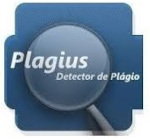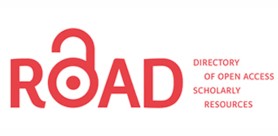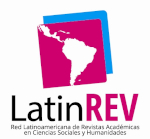ISSN: 2675-5157
Submissions
Submission Preparation Checklist
As part of the submission process, authors are required to check off their submission's compliance with all of the following items, and submissions may be returned to authors that do not adhere to these guidelines.- It is mandatory that all authors have ORCID and make it available at the time of registration of the Journal. Those who do not have a registration must do so at: https://orcid.org/signin.
- It is mandatory to send the Declaration of Conflict of Interest signed by all authors of the Article at the time of submission (Model Conflict of Interest).
Continuous Flow Articles
Section default policy
Artistic Manifestations
This section is designed to promote contemporary artistic productions. There is no specific standard and the author (s) can submit files with up to 20 pages.
Assay
Theoretical review, critical review of thematic bibliography or specific work.
Experience reports
EXPERIENC REPORTS: description and analysis of experience developed in educational environments. The reports may be composed according to the following perspectives:
1. The School and the Classroom
2. The Teachers’ voice
3. The Students’ voice.
THEMATiC: Today's language teaching: new practices, methodologies and challenges
Since the communicative approach was consolidated, language teaching has been subdivided into
four primary skills: production and written comprehension, production and oral comprehension.
Production means the speeches and genres that the student is capable of producing. Understanding
comes from the act of understanding, that is, a psychological process that indicates the
understanding of something. Martinez (2009) points out that the communicative approach is
centered on the students' interests and should follow, as a priority, four precepts. First,
here is a resumption of feeling, in the sense of a notional grammar. There are fewer formal
exercises than the predecessor method, as it is by communicating that one learns to
communicate; real communication is what matters in the classroom. Then, it highlights the role
of learning, such as project learning. Finally, social and pragmatic aspects of communication
must be addressed, as knowing how to do is the most important part of the lesson. Both
production and comprehension can take place in two different modalities: oral and written.
For the first is what the student produces more spontaneously, aimed at the recipient, dirty
communication goal is realized more quickly. As for writing, there is greater planning,
distance from speaker and emitter, in addition to greater importance to grammatical and lexical
dexterity (VILA, 2018). Thus, in this issue, the objective is to gather articles of relevance
to the academic area about skills, as well as the use of technologies and active methodologies
in education. It is not possible to neglect to consider the changes that have occurred in recent
months in view of the intense use of technologies to mediate learning. We believe in the role of
student and teacher so that teaching is more efficient, so that students can communicate in the
language studied.
Thematic Articles - PORTUGUESE-INTERNATIONAL LANGUAGE
It is known that Portuguese is today the (co) official language of nine countries that make up the Community of Portuguese Speaking Countries (CPLP) - Angola, Brazil, Cape Verde, Guinea-Bissau, Equatorial Guinea, Portugal, Mozambique, São Tomé and Príncipe and Timor-Leste - and the Macau Special Administrative Region.
Portuguese can be considered, in our contemporaneity, as a pluricentric language. In this way, it is salutary to promote critical reflections regarding the “valorization of different linguistic varieties, the preference for certain linguistic repertoires for citizen participation, local and global, and for the management of linguistic and educational actions at national and international levels” [1] .
In this sense, this thematic issue of the Open Minds International Journal will bring together works that will add voices to the discursive community dedicated to understanding Portuguese as a multidimensional, intercultural and pluricentric language.
Thematic Dossier: Contemporary dialogues: education, language, culture and socie
Organization: Prof. Dr. Fábio Marques de Souza (UEPB), Prof. Dr. Márcia Helena de Melo Pereira (UESB), Prof. Dr. Tatiana Cristina Vasconcelos (UEPB).
Open Minds International Journal invites researchers to submit articles, reviews, translations, interviews, short stories and artistic expressions for the thematic dossier "Contemporary dialogues: education, language, culture and society". This special issue seeks to bring together works that explore, from a dialogical perspective, the interrelations between education, language, culture and society, promoting interdisciplinary reflections.
With a global audience of over 15,000 monthly readers, Open Minds International Journal provides significant visibility to your research, establishing it as an essential reference in contemporary academic debates. Created in 2020, the journal meets all the criteria for a good score in Qualis CAPES (https://www.youtube.com/watch?v=z8Mi8b1Hm4g), is registered under ISSN: 2675-5157 and each article receives an individual DOI
Indexers and Databases: Open Minds International Journal is an open access, double-blind peer-reviewed academic journal, indexed in renowned databases such as Google Scholar, Sumários.org, LIVRE, Latindex, Diadorim, ABEC Brasil, Citefactor, ROAD, LatinREV, EUROPUB, Scilit and IDEAS. Our commitment is to disseminate innovative research and ensure quality and impartiality in the evaluation of papers.
Submission of Proposals: Texts must be submitted by May 10, 2025, via the journal's official platform: https://openmindsjournal.com/openminds. The publication is scheduled for the end of May 2025.
Article Processing Charge (APC): Open Minds International Journal is maintained by Editora Mentes Abertas, without public institutional funding. To ensure its sustainability, an article processing charge (APC) of R$59.00 will be charged per article approved after blind peer review, as provided by CAPES. In the case of authors from abroad, payment may be made via PayPal.
Copyright Notice
The authors declare that any work submitted, if accepted, will not be published elsewhere, in English or in any other language, and even electronically, unless it expressly mentions that the work was originally published in the Journal.
Privacy Statement
The names and addresses informed in this magazine will be used exclusively for the services provided by this publication, and will not be made available for other purposes or to third parties.












